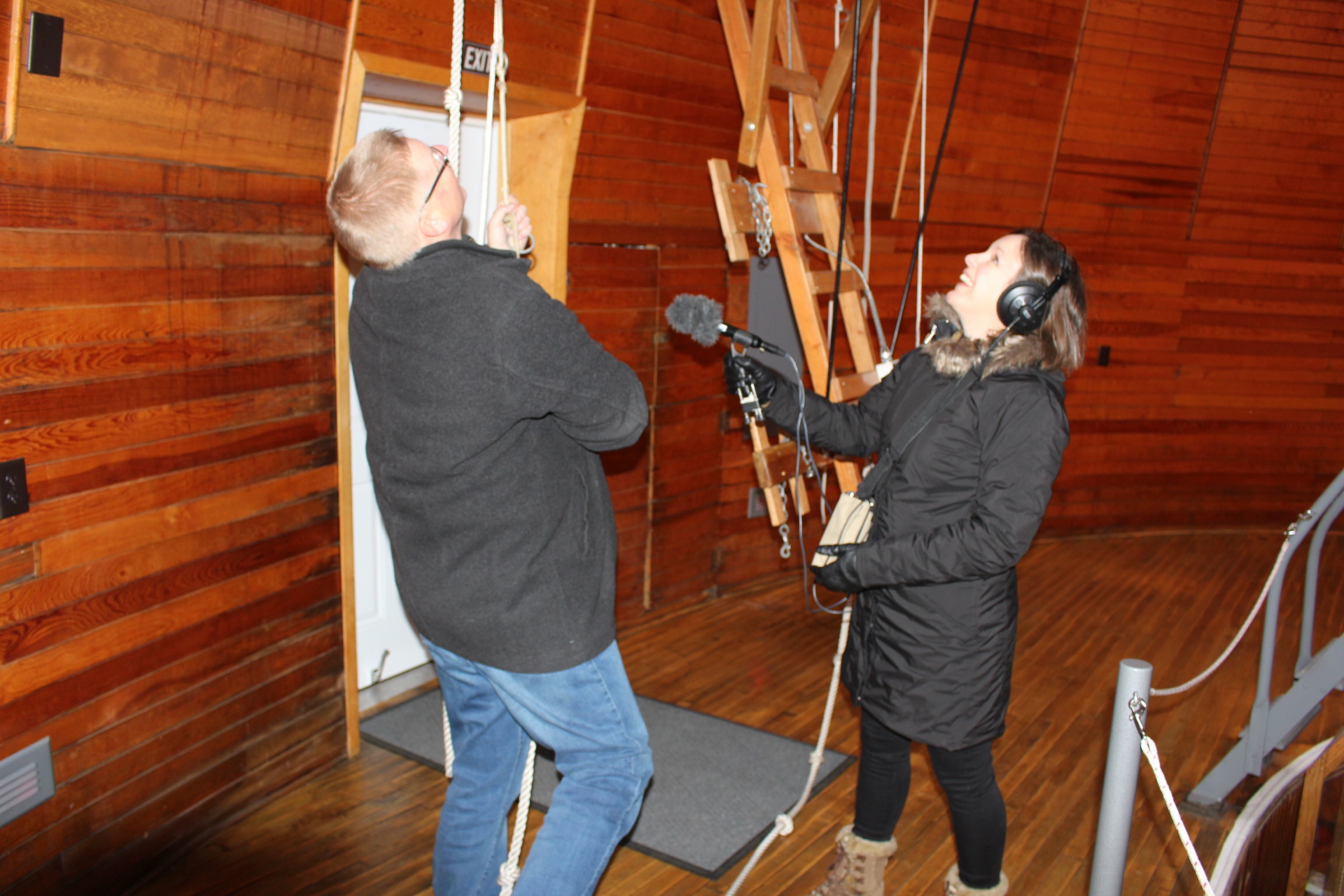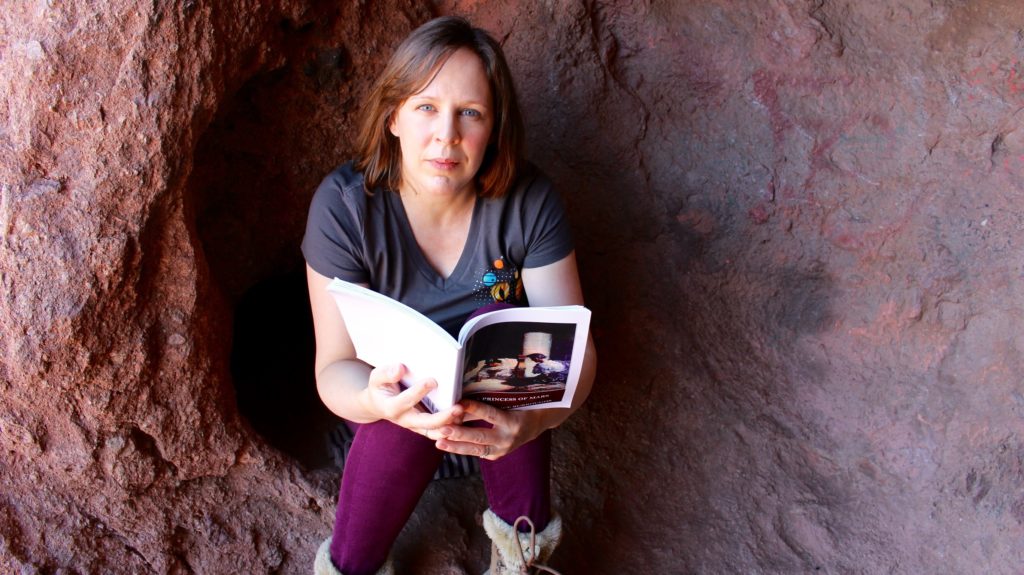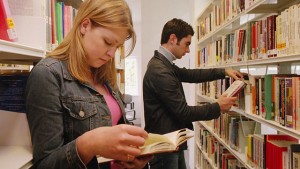The AI Narratives project at the Leverhulme Centre for the Future of Intelligence is one of the most exciting research projects I’ve ever been involved in, combining traditional individual scholarly research (we are all writing monographs connected in some way or other with the project), collaborative outputs (two edited collections and a journal special issue are currently in preparation) as well as significant and genuinely impactful outfacing work, facilitated by our collaboration with the Royal Society. The project website will be updated in the Spring so that we can share information about all the things we are doing more easily, but in the meantime we’re carrying on with our academic research and public engagement in earnest. I marked the end of 2017 with a brief appearance on BBC Radio 4’s Today programme (available here @ 1.53.13) in which I was at pains to counter media sensationalism with a message about the importance of analysing and diversifying popular narratives about AI if the technology is to provide a future we all want, rather than the one some of us fear.
Tag Archives: BBC Radio 4
‘Seeing is Believing’, ‘We Are the Martians’ Episode 1, 11am Monday 6th March, BBC Radio 4
The arrival of Spring sees Radio 4 go into full Martian mode for a festival week celebrating the red planet. To kick things off I’m presenting the first of three documentaries on our scientific and literary imaginings of Mars…Come with me to Mars. A planet we have been been dreaming and writing about for centuries. From the Old Mars of canals and fantastic beasts, to utopias projected by feminists, bolsheviks and even druids. You can have any Mars you want, at least until we get there and Mars is finally terraformed and settled as a new Earth. Join me for Seeing is Believing – the first episode in a three part series, We Are the Martians – on Monday 6th March at 11am on BBC Radio 4, and available to listen again on the BBC iplayer.
And so I’m back, from outer space…

On location, Lowell Observatory, Flagstaff, Arizona. A rare moment of getting to hold the kit for a photo op as the roof of the observatory is opened.
After 6 months in solitary academic confinement, and with The Book triumphantly written, the beginning of 2017 has seen me return to life beyond my study with renewed enthusiasm and vigour. I’ve spent the past few months steeped in the Martian imaginings of our greatest writers and scientists for a BBC Radio 4 documentary on mankind’s romance with the red planet, for which I had the great if exhausting pleasure of a weekend trip to Mars’ Earth analogue, Arizona. We visited Percival Lowell’s Flagstaff observatory to learn more about how it all began, and then descended to Phoenix to talk about where we are now, with contemporary Mars scientists at Arizona State University. There may also have been a morning spent barsooming around the Arizona desert – as close to Mars as I’m ever going to get – imagining encounters with magnificent and fearsome six-limbed Tharks. And if that sounds a little frivolous, I can assure you that it was actually very illuminating: standing on red rock, looking across the barren desert to the dust clouds on the distant horizon, it suddenly made sense why that landscape inspired the original literary visionary of Mars – Edgar Rice Burroughs – whose experiences on those plains and encounters with their native inhabitants shaped his Martian imaginings. The programme will be broadcast as part of Radio 4’s Martian Festival at the beginning of March – more details to follow.
I also had the pleasure this week of a stimulating hour’s conversation with SF writers Roz Kaveney and Aliette de Bodard for an episode of Radio 4’s Beyond Belief on religion and science fiction, which will be broadcast on Monday 13th March. And, to knock a little realism into me, next month I’ll start recording my new series of Literary Pursuits by investigating the story behind the story of E. M. Forster’s posthumously published Maurice. Fortunately, neither interplanetary nor transatlantic travel is necessary to get started on that investigation, since a treasure trove of Forster’s papers sits on my doorstep in King’s College Cambridge’s modern archives.
Why Close Reading? Series 2 begins on BBC Radio 4’s Open Book
The second series of my Close Reading feature on BBC Radio 4’s Open Book has kicked off in 2016 with two readings of novels about as different as can be. In the first episode, I try to figure out if you can close read comedy without taking all the fun out of it – my case study is Stella Gibbons’ comic classic, Cold Comfort Farm. In stark contrast, in the second episode, I take on J. M. Coetzee’s disturbing novel Disgrace, looking at how point of view in the narration of a rape reveals the ideas about complicity and denial at the heart of the novel. The series will continue over the next 6 months with episodes on Raymond Chandler’s The Big Sleep and Toni Morrison’s Beloved next in line. If you want to catch up with episodes from Series 1, they’re all gathered together on my BBC Close Reads page.
Since the first Series, I’ve had lots of conversations with people about close reading and why I believe it’s such an important way to approach literary texts both inside and outside the academy. So I thought with the launch of the second series it might be a good time for a blog making my case…
When I turned 16 my Dad gave me a copy of The Collected Dorothy Parker and I fell in love. She’s just brilliant. Parker’s very well known on the other side of the Atlantic, but not so much over here. When I introduce her to people I describe her as a kind of American Oscar Wilde. She’s very funny, darkly so. She’s perhaps most famous for her aphorisms that slip off the tongue but slice their targets – the one I always remember is ‘That woman speaks eighteen languages and can’t say “No” in any of them’.
Parker’s writing, like Wilde’s, is perfect, shinny, and smooth. What we see in it is a brutally honest reflection of ourselves and our societies. So she’s a very interesting example in relation to close reading. Because close reading requires depth. In any first reading, you skip along the surface, you’re drawn in by the plot, the emotion, the characters. You read quickly and you are absorbed. If a book doesn’t do that to you, it’s not working. And many people, to be fair, are happy to stop there. But I don’t think everybody is, or at least not all the time. And don’t think it’s just academics or students that want or need to know more, that say, ‘Hold on – this book’s made me laugh, or made me cry, or kept me riveted all night when I should have been asleep. How did it do that? How did words, just words, make me feel like that?’.
And that’s where close reading kicks in. You go back, and you go slowly. You look at just one passage, sometimes even just one line. And you get everything you can out of it. Which words have been chosen – why those exact ones not other ones? How have they been put together? Is there repetition? Is there emphasis? Who’s speaking? Whose thoughts do we have access to? There’s almost no end of these type of questions. But if you ask them, if you keep asking them, at some point, there’s this kind of moment, like twisting a kaleidoscope, when you see the pattern. And that moment is like discovering how a magic trick’s done. Suddenly, you understand, or at least you start to understand, how the book made you feel the way it did. And, even more importantly, you understand how the smallest detail is connected to the largest theme. And that’s really exciting. The book takes shape for you in a way that it hasn’t done before. Close reading exposes its workings – it’s like seeing a really complex clockwork mechanism with the front taken off. But that doesn’t ruin it for me. Because you don’t stop there. You go back and read for a third time and on that reading you’ve got the combination of the speed of the first reading, and the insight of the depth of the second close reading. And that third reading is something truly special.
‘A third reading?!’ I hear you exclaim in disbelief. Yes, why not. I know we’re all busy, that our lives are scheduled from morning to night. But that’s another reason why close reading’s important – it’s almost a kind of political act. It stands against the urgent speed and constant movement of contemporary life. It says no, there is power, there is benefit in going slowly, in reading closely and carefully. When Ali Smith was on Open Book in September 2014, she made exactly that plea for her own work – take time with it, she said, and it will nourish you.
Close reading also nourishes the writer, because it gives credit where credit is due. Just like magicians, writers don’t really want you to see the labour that’s gone into their work – it wouldn’t be enjoyable, it wouldn’t be working its magic, if you could. Ernest Hemingway said ‘it’s none of their business that you have to learn to write. Let them think you were born that way’. But at the same time writers actually do want you to know that – because they work really hard to get their prose just right, to get the exact effect they’re aiming for. Dorothy Parker’s prose for instance, shows no sign of effort, but in fact she edited and edited to get it that way: ‘I can’t write five words but that I change seven’ she said. Close reading is a compliment to writers – it’s saying, ‘You spent time on this, so I’m going to spend time on it too’. And that’s pleasurable and rewarding for both readers and writers.
BBC Radio 4 Open Book Close Reads Page Launched
Series One of Close Reading came to a close on Monday with the final episode on Pat Barker’s Regeneration. I’ll be returning to the Radio 4 airwaves with Series Two in the autumn, but if you are getting withdrawal symptoms in the meantime all the episodes from Series One have been usefully gathered together on my new BBC Radio 4 Open Book Close Reads page. If you’ve enjoyed the first series, and especially if you, or your book club, have decided to have a go at close reading as a result, I’d be delighted to hear your feedback on the effects of listening to the episodes and on the outcomes of your close reading experiments. Please feel free to send your responses to Series One to me.
Why We Read, Open Book, BBC Radio 4
On Monday 10th August Open Book steps into Radio 4 limelight with a special 45 minute feature show in the Start The Week slot on ‘why we read’. Along with how we read, why we read is a question I’m very much interested in and one I hope to return to in a year or so when I resume work on a project I began at St Andrews on what and why scientists read. In the meantime, I’ll be listening with interest to Mariella and her guests on Monday, and I am delighted that the final episode in my current series of ‘Close Reading’ will be included in the show.
Close Reading Continues…
All is as been rather quiet on the public engagement front since my first full academic year at Cambridge began back in October. But whilst in person I have been absorbed by the pleasures and demands of teaching and administration, the ‘Close Reading’ broadcasts for BBC Radio 4’s Open Book programme have been going out steadily every month or so and have been received very well by the public, which is wonderful. The fifth episode will be broadcast this Sunday 24th May, in which I wrestle with a challenging passage from near the opening of Ian McEwan’s disturbing novel Enduring Love. Check out my radio pages for links to all the aired broadcasts in the Close Reading Series, covering Elizabeth Bowen, Aldous Huxley, Muriel Spark and Katherine Mansfield. The final broadcast in July will take a close look at Pat Barker’s Regeneration.
‘Close Reading’ Series on BBC Radio 4’s Open Book
I’m delighted to be able to announce my new miniseries – ‘Close Reading’ – for BBC Radio 4’s literature programme Open Book. The first episode went out yesterday, Sunday 23rd November, and guides listeners through a passage from one of my favourite novels, Elizabeth Bowen’s A World of Love. In an age when speed is everything and time seems to dwindle to nothing, the idea of the series is to go slow, to read texts with an acute sensitivity to detail, with an ear and an eye for how they are doing what they are doing. Outside of educational institutions, it’s not an approach to literature now commonly practised by readers around the country, so novelist Tessa Hadley and myself spent some time convincing Mariella of its value in the interview introducing the series. It was wonderful to discover both Tessa and I are passionate believers that such close attention to detail repays the effort. Close reading gets at the heart of what the writer has done with words and can spin the reader out from the tiniest of details to the largest of themes. It’s the way I was taught to read and it’s the way of engaging with texts that I find most intimate, exciting and rewarding. I hope listeners will think so too.





